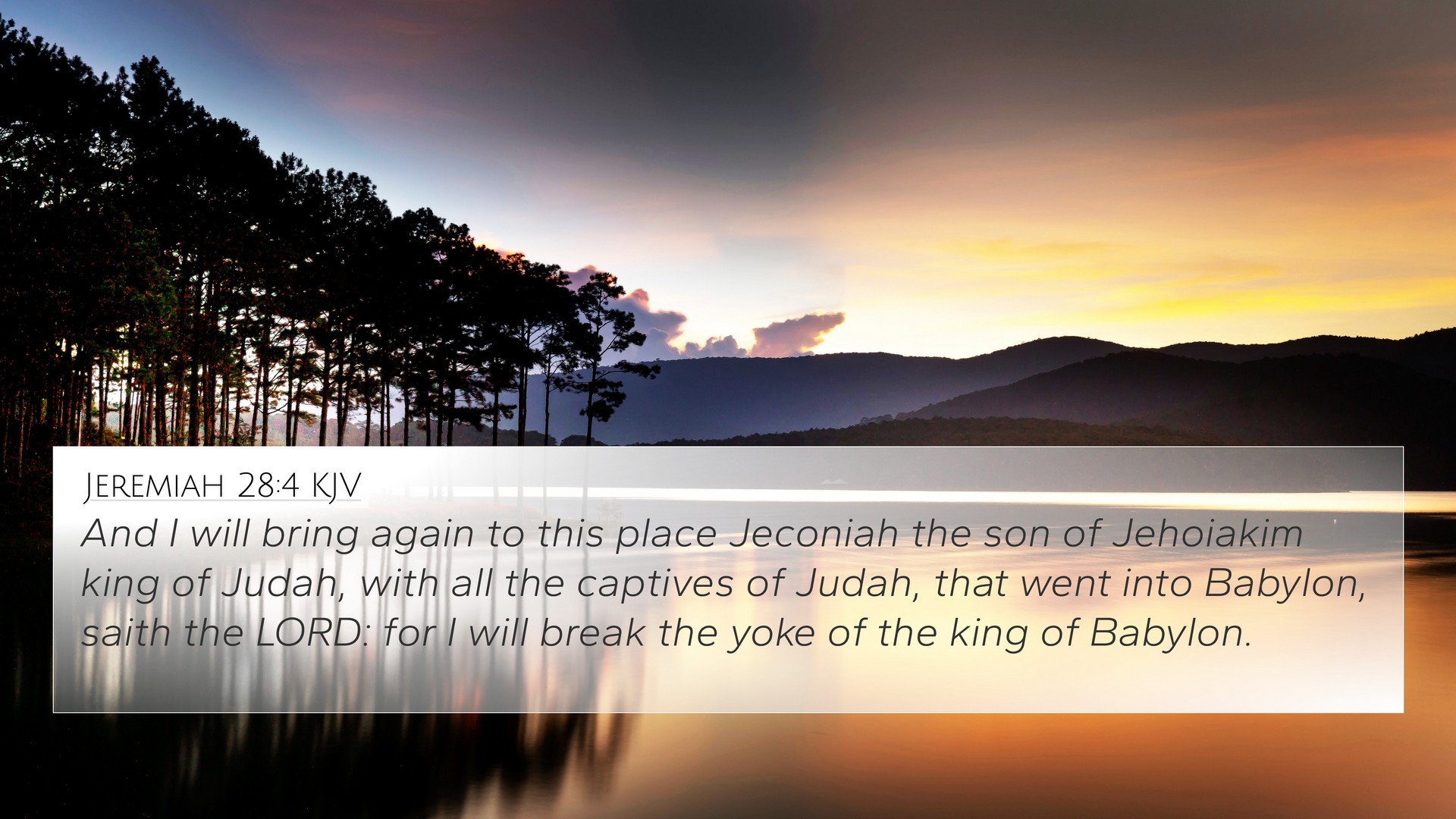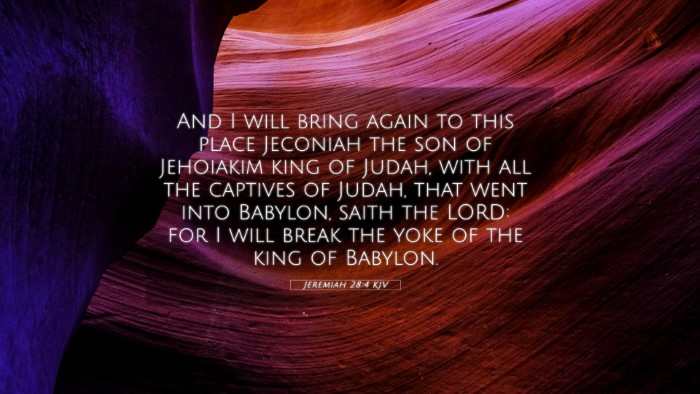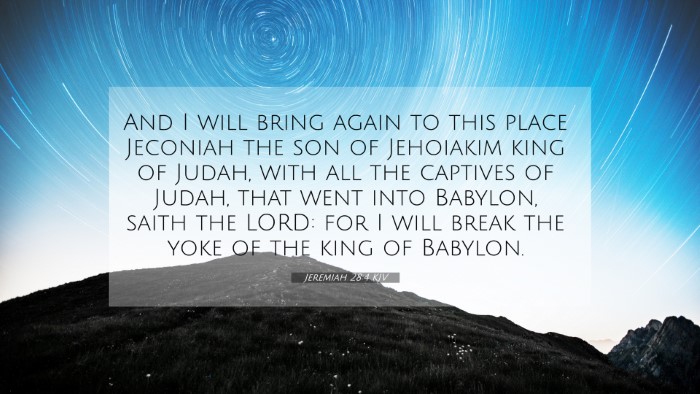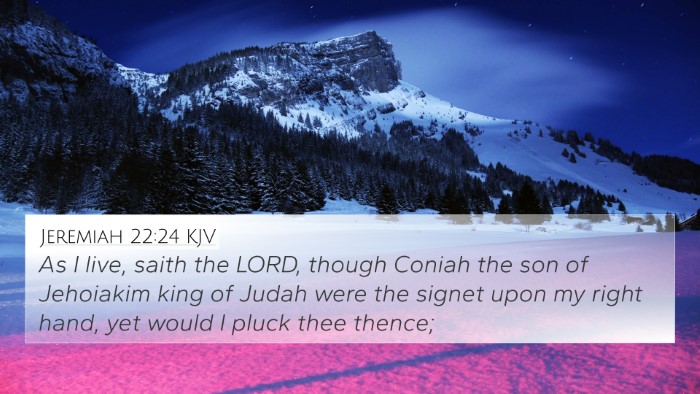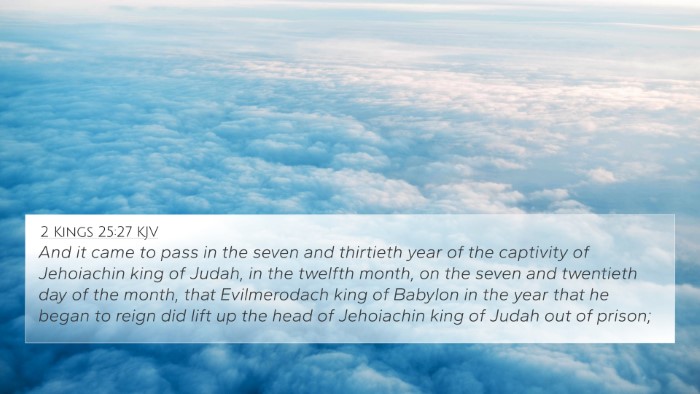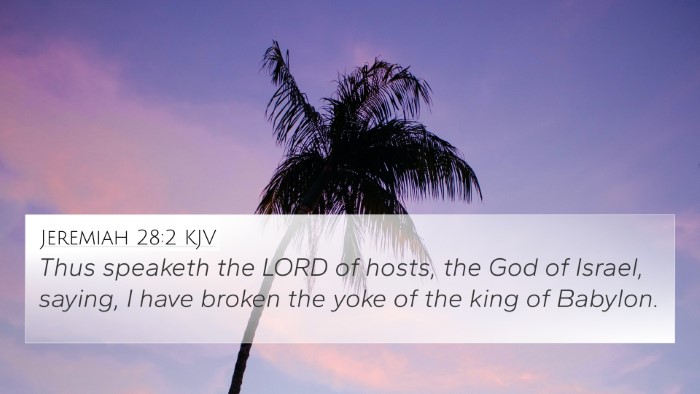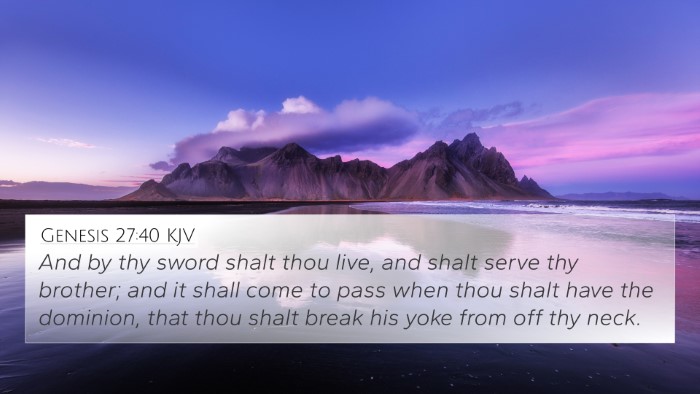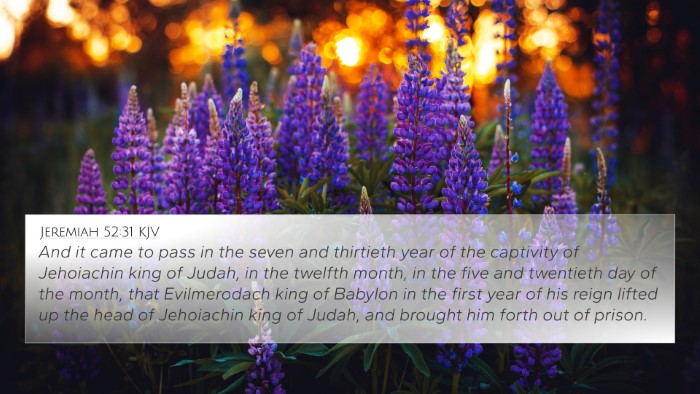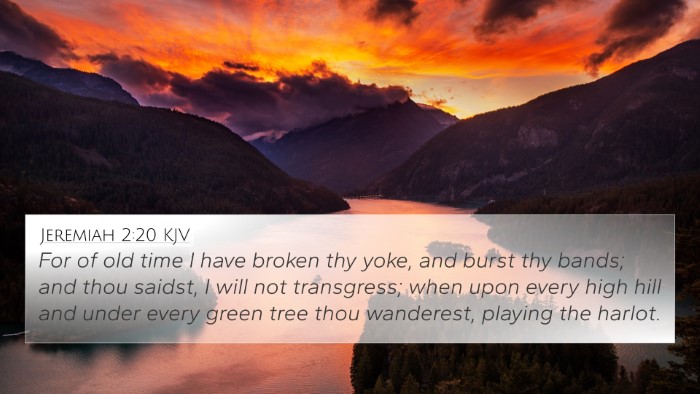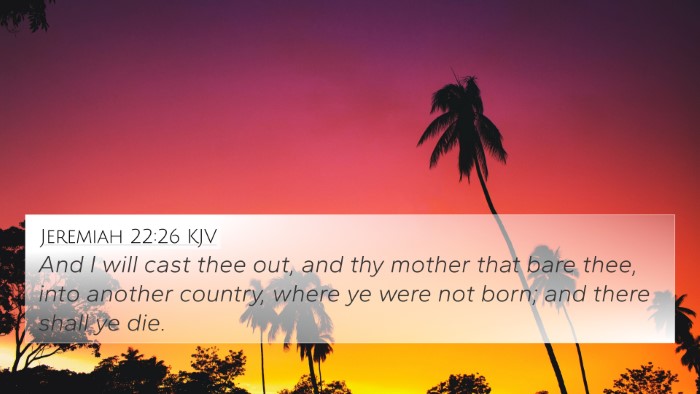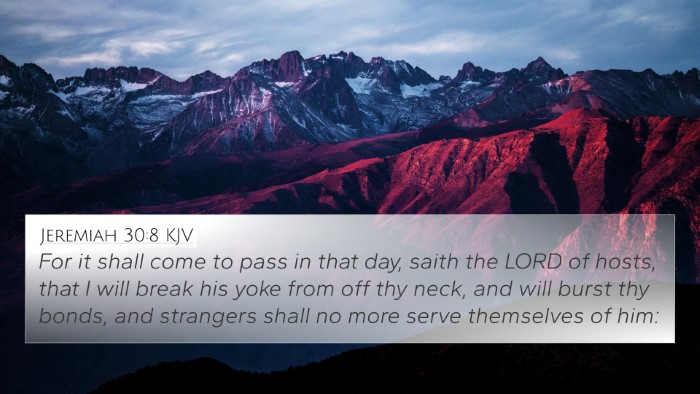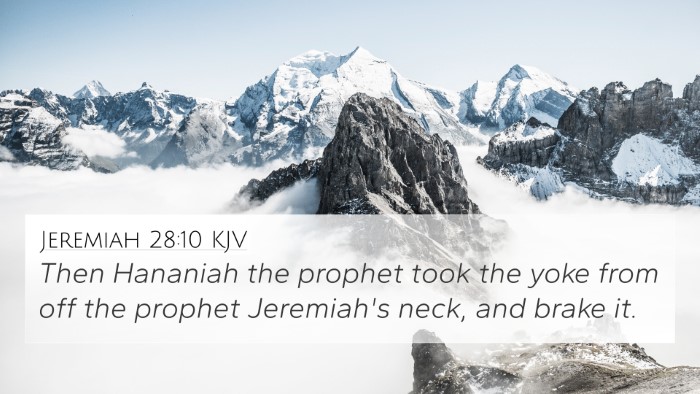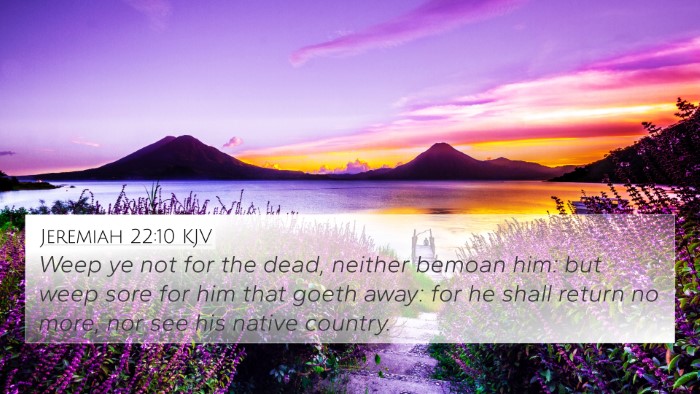Understanding Jeremiah 28:4
The verse Jeremiah 28:4 states: "And I will bring again to this place Jeconiah the son of Jehoiakim king of Judah, with all the captives of Judah, that went into Babylon: saith the Lord; for I will break the yoke of the king of Babylon." This verse is part of a larger narrative where false prophets are offering hope to the people of Judah amidst their captivity in Babylon. To grasp its full meaning, we can consider insights from various public domain commentaries.
General Context
This verse takes place within the backdrop of the Babylonian exile, a time when the people of Judah were not only physically removed from their homeland but also spiritually tested. It serves as a pronouncement from the Lord through the prophet Jeremiah, indicating a promise of restoration and hope amidst despair.
Insights from Matthew Henry
Matthew Henry emphasizes the importance of God’s promises to his people despite their current circumstances. He notes that God reassures them about the return of King Jeconiah, conveying a strong message that the captivity will not last forever. This promise offers spiritual encouragement and emphasizes God’s sovereignty over nations.
Insights from Adam Clarke
Adam Clarke highlights that the mention of Jeconiah (also known as Jehoiachin) is significant as he represents a line of Davidic kings. Clarke points out that the return of Jeconiah not only signifies political restoration but also suggests the continuation of David’s lineage, hence a deeper theological meaning pertaining to God's covenant with David.
Insights from Albert Barnes
Albert Barnes discusses the implications of the ‘yoke’ mentioned in this verse, relating it to various oppressive regimes. He sees the breaking of this yoke as a metaphor for liberation, stressing that God will act decisively to free his people from their oppressors. Barnes suggests that this reflects God’s enduring commitment to fulfill His promises.
Cross-References
To better understand Jeremiah 28:4, it is helpful to explore related verses that offer connections between biblical themes. Here are some cross-references:
- Isaiah 10:27: "And it shall come to pass in that day, that his burden shall be taken away from off thy shoulder, and his yoke from off thy neck, and the yoke shall be destroyed because of the anointing." (Themes of liberation)
- Jeremiah 29:10-11: "For thus saith the Lord, That after seventy years be accomplished at Babylon I will visit you, and perform my good word toward you, in causing you to return to this place." (Promise of restoration)
- 2 Chronicles 36:20-21: "And them that had escaped from the sword carried he away to Babylon; where they were servants to him and his sons until the reign of the kingdom of Persia: To fulfill the word of the Lord by the mouth of Jeremiah…" (Historical fulfillment of prophecy)
- Matthew 1:12: "And after they were brought to Babylon, Jeconiah begat Salathiel; and Salathiel begat Zorobabel." (Lineage of Christ)
- Daniel 9:19: "O Lord, hear; O Lord, forgive; O Lord, hearken and do; defer not, for thine own sake, O my God: for thy city and thy people are called by thy name." (Prayer for restoration)
- Ezra 1:1-3: "Now in the first year of Cyrus king of Persia, that the word of the Lord by the mouth of Jeremiah might be fulfilled, the Lord stirred up the spirit of Cyrus..." (Return from exile)
- Zechariah 8:7-8: "Thus saith the Lord of hosts; Behold, I will save my people from the east country, and from the west country; And I will bring them, and they shall dwell in the midst of Jerusalem..." (Promise of restoration)
Thematic Connections
This verse not only highlights God's judgment but also His mercy and promise of restoration. The themes of hope and redemption are prevalent throughout the scripture, showing a God who is deeply involved in the affairs of humanity and ultimately desires reconciliation with His people.
Conclusion
In conclusion, Jeremiah 28:4 serves as a crucial verse of hope and restoration amidst the backdrop of exile. Through the lenses of various commentators, we gain insights into God’s faithfulness and the assurance that even in despair, there are promises of deliverance. This verse, along with its cross-references, underlines the continuity of God's plan throughout history and His unwavering commitment to His people.
Using Bible Cross-References for Study
Cross-referencing Bible verses enhances understanding, offering deeper insights into biblical themes and connections. Here are some tools and methods to facilitate effective cross-referencing:
- Bible Concordance: Useful for finding specific words and themes throughout the Bible.
- Bible Cross-Reference Guide: Provides a systematic way to link related verses.
- Cross-Reference Bible Study: Engaging with scripture through interconnected verses fosters a deeper understanding.
- Bible Chain References: A method to link verses by chains of related topics.
- Tools for Cross-Referencing: Utilize study Bibles and online resources to find connections between passages.
Encouragement for Further Study
For those seeking to enhance their understanding of scripture and participate in an inter-biblical dialogue, a careful examination of cross-references will reveal the richness of God’s word. Consider how verses connect and support each other, and reflect on how these scriptures inform your faith and daily life.
